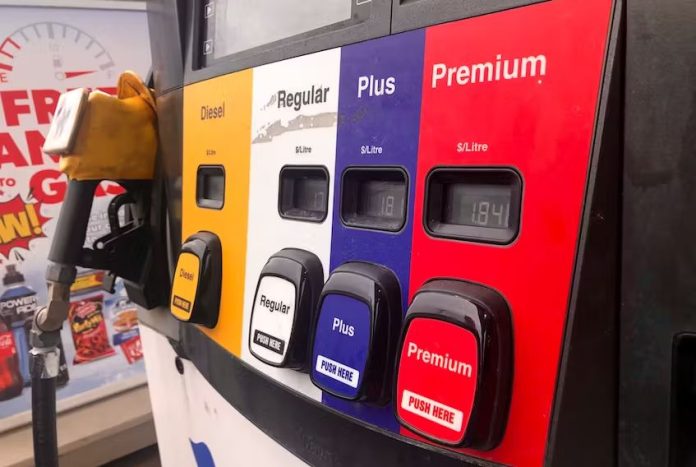
Ottawa (Feb 20) – Inflation fell to slightly under 3% in January largely due to lower gas prices, according to the latest report from Statistics Canada (StatsCan).
The national statistical agency says that the largest contributor to headline deceleration was lower year-over-year prices for gasoline in January (-4.0%) compared with December (+1.4%). Excluding gasoline, headline CPI slowed to 3.2% year over year in January, down from the 3.5% growth in December.
Price growth for food purchased from stores slowed year over year in January (+3.4%) compared with December (+4.7%), putting downward pressure on the all-items Consumer Price Index (CPI). Lower prices for airfares and travel tours also contributed to the headline deceleration, StatsCan stated.
On a monthly basis, the CPI was unchanged in January, following a 0.3% decline in December. On a seasonally adjusted monthly basis, the CPI fell 0.1% in January, the first decline since May 2020.
Year over year, gasoline prices fell 4.0% in January following a 1.4% increase in December, largely due to a base-year effect. In January 2023, prices at the pump increased amid refinery closures in the southwestern United States following Winter Storm Elliott.
On a monthly basis, prices for gasoline fell in January 2024 (-0.9%) for the fifth consecutive month. Lower gas prices in Manitoba (-14.1%) contributed to the national decline, following a temporary suspension of the provincial gas tax.
While grocery prices remained elevated, their growth slowed year over year in January (+3.4%) compared with December (+4.7%).
The deceleration of grocery prices was broad-based, with products such as meat (+2.8%), other food preparations (+4.2%), dairy products (+1.5%), bakery products (+4.0%) and fresh fruit (+1.9%) contributing to the slower year-over-year price growth in January. Other food items, such as soup (-2.1%), bacon (-8.4%) and shrimps and prawns (-3.4%) had year-over-year price declines in January.
Year over year, prices rose at a slower pace in January compared with December in nine provinces.
Alberta was the only province with faster price growth, partly due to higher electricity prices in January (+119.9%) compared with December (+22.9%) as the result of a base-year effect. The large monthly decline in January 2023, when many Albertan households received rebates on their electricity bills, is no longer affecting the year-over-year movement.
In Saskatchewan, the collection of the carbon levy ceased in January 2024, contributing to the province’s year-over-year price decline of natural gas (-26.6%).




